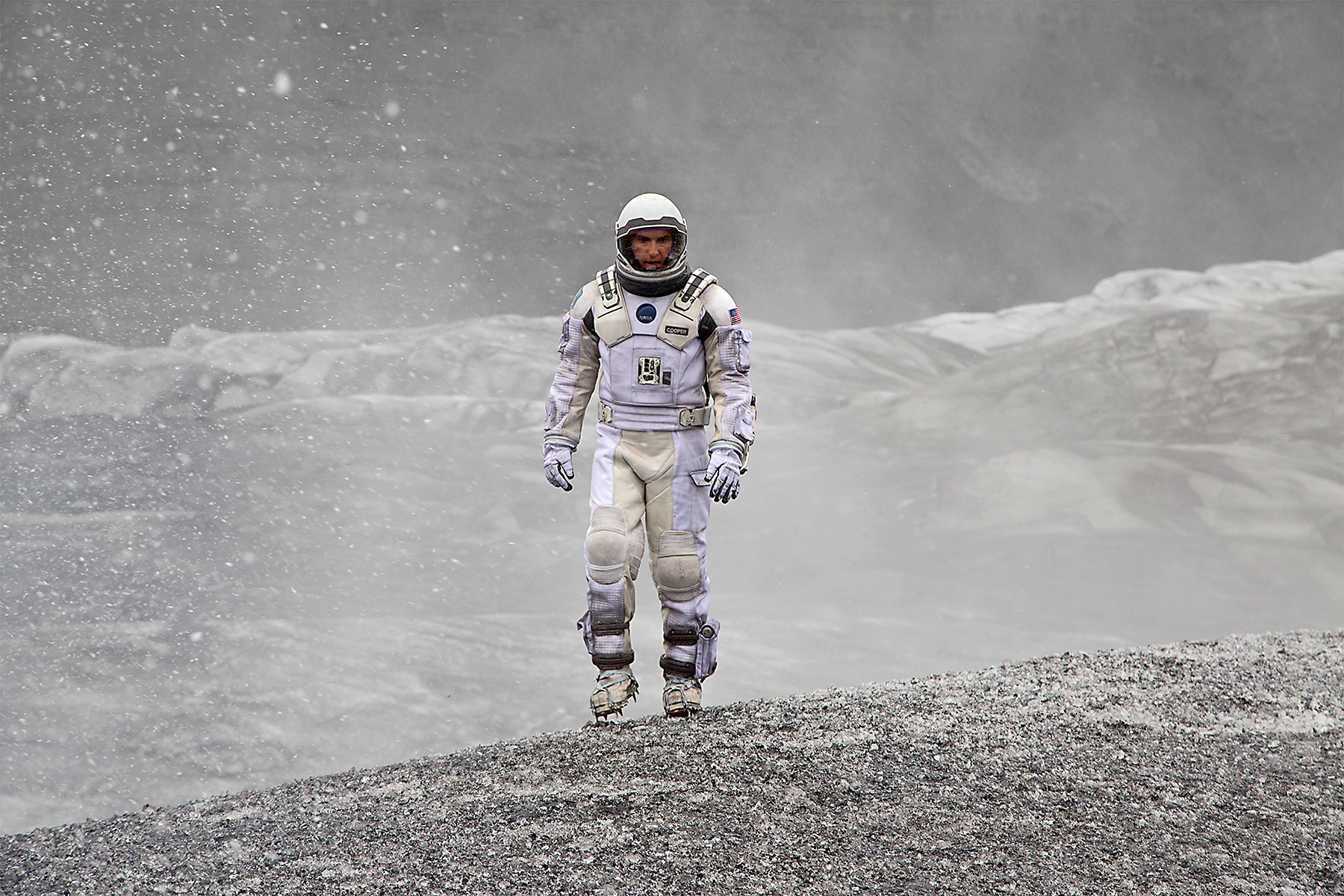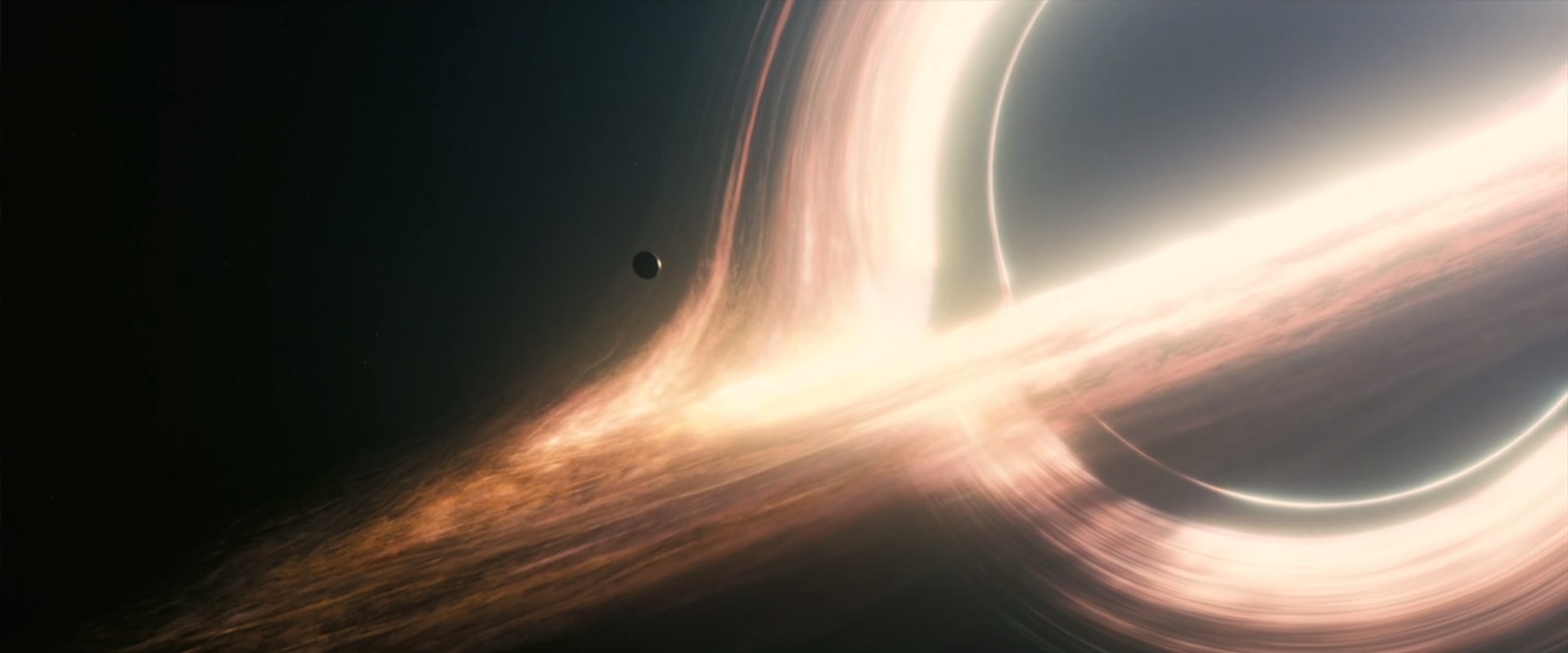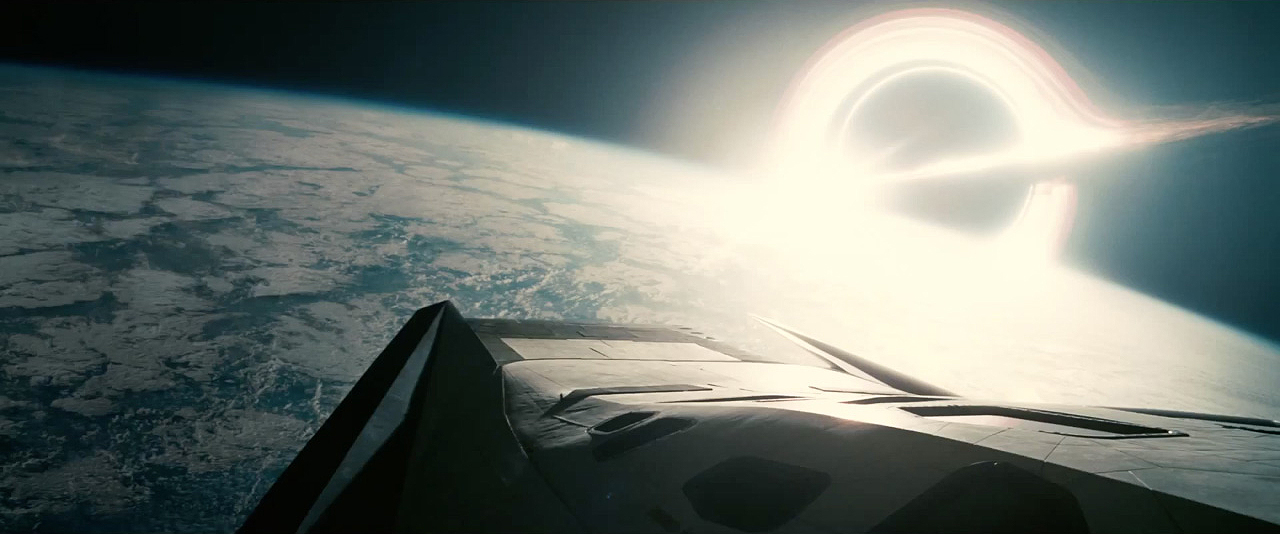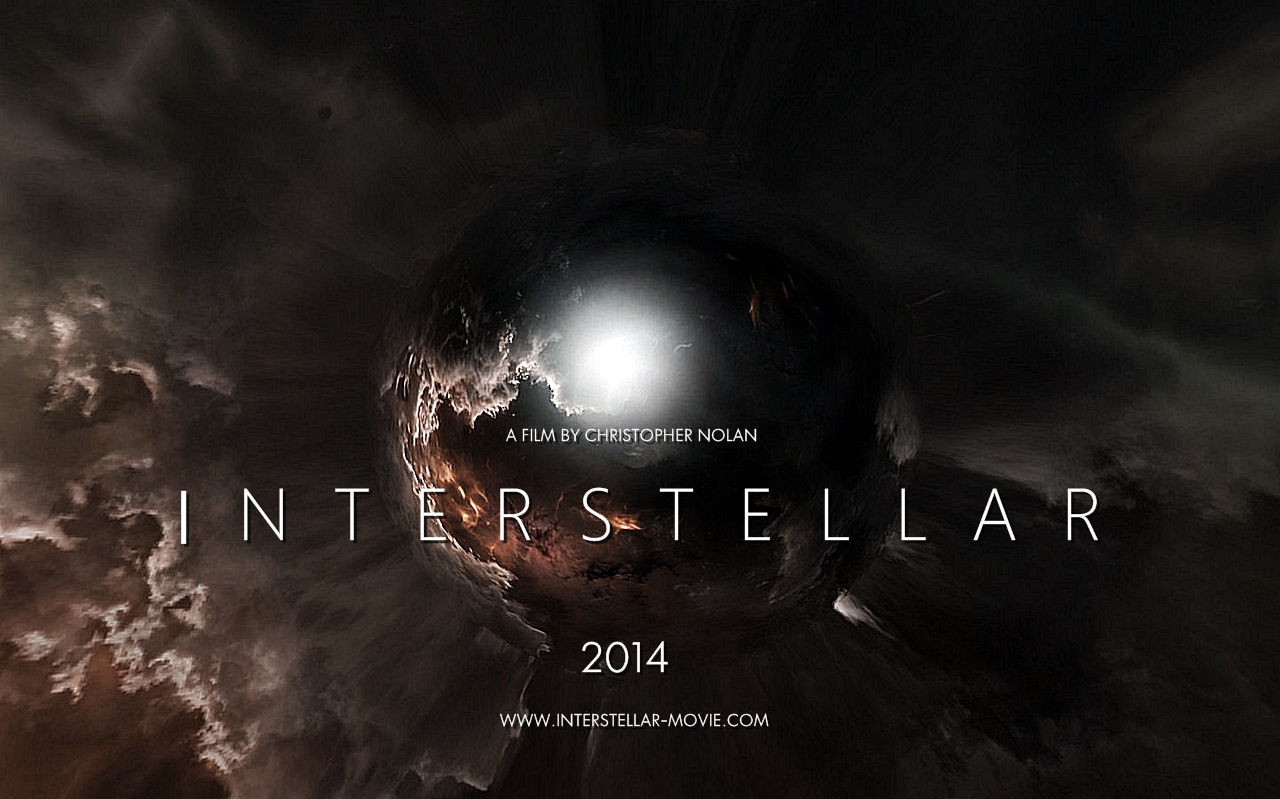I have a confession to make. I’m more than a week late on this article. I’ve seen this movie three times already: on digital projection, in IMAX 3D and even in a pirated download, and I still can’t figure out what to think about it.
I just can’t make up my mind on whether Interstellar is so stupid it’s insulting or if it’s an incredibly smart masterpiece and my brain capacity is not quite enough to see the grandeur.

The film is set in a near future, some 50 years away from our present time. The Earth seems to have gone through some serious economic, natural and social catastrophe and people (at least in the United States. No other country is depicted) live in scarce conditions. Most of the population are farmers, and there is not much room for anything else. No investigation, not much sports. Nor entertainment.
NASA still exists, but way under the public radar. The federal agency is spending the few tax dollars the population still generates on designing an ultra secret mission to search for another planet capable of sustaining human life. Scientists seem to have agreed that our Earth is a hopeless case and the only possibility left for the species is to either pack all the people inside a huge spacecraft and move them to the new planet (referenced in the film as plan A) or leave everybody to rot and instead slowly colonize the suitable planet with a genetic bank and the help of the elite scientists that travel with it (plan B).
We all know Christopher Nolan is one of the most successful directors of the 2000’s. His version of The Dark Knight (2008) alone grossed 1 billion dollars worldwide. The industry definitively owes to his Batman trilogy (and Bryan Singer’s X-Men) for the non-fantasy and anti-comedic tone superhero films have taken in recent years, which is a good thing if you’re like me and despise the Adam West and Tim Burton approach. But, we can also blame Nolan and his success for the never ending flood of caped champion flicks audiences have to painfully endure these days.
What separates his movies from other high grossing directors, like Michael Bay or M. Night Shyamalan, is that his works are generally well received by critics. His films are unusually complex for a mainstream project and often deal with philosophical or scientific concepts. Another trait that sets Nolan apart from the rest is his skilful use of the medium. While other studio filmmakers just follow the trends and stuff their frames with CGI while shaking the camera like in a bad wedding video, Nolan is a subtle and straightforward auteur with his camera work and is known for his preference for practical effects (effects that are captured by the camera along with the rest of the action) over digital image manipulation. Interstellar, like the rest of his feature length filmography, was shot on 35mm film and barely contains any CGI.
One of the things that impressed me the most about the film was it’s production design. For a film about space travel, the tech depicted rarely calls attention to itself. No 10, 20 second shots of spaceships soaring gracefully through space. No Waltz here. The astronaut suits, the spaceships, the screen interfaces and the controls… everything is designed with extreme minimalism and functionality in mind. Even the robot (TARS) is just a silver box with a CRT screen. Society right now is more than used to gadgets in their everyday life, and Nolan’s intention in Interstellar is to weed out every possible distraction so the audience can focus on the complexities of the theory of space travel portrayed in the film.
Makeup here is also impressive because of its subtlety. Matt Damon (Dr. Mann) looks like your average high school math teacher and Jessica Chastain’s (Murph) elf-like, pearl skin is given the reality treatment.

Likewise, cinematography and editing are graceful and elegant, equally designed to stay in the background and not call attention for themselves. Which is, from a film making point of view, a whole lot more difficult to do. Particularly effective is the cross cutting in the final third of the movie, when we go back and forth between two showdowns, one that happens in a far corner of another galaxy and another that evolves at a corn field on Earth. To me, it resembled some of Nolan’s earlier work, specifically Memento (2000).
In Interstellar, Nolan restrained himself from using any green screen. I don’t know if it was because of that or due to a stylistic decision, but there are no more than a handful (10, maybe less?) of establishing shots in the whole movie. Which is certainly strange taking into account that this is a space film with spaceships in it. Incredibly enough, the bulk of the entire film is made up of close-ups and two-shots. Even the flight sequences are staged in tight framing with the hull of the craft nearly occupying the whole frame. The zero gravity sequences also occur without fuzz and very quickly, almost as if the filmmakers want to get them out of the way as fast as possible.

Hans Zimmer is in charge of the musical score as he usually does in Nolan’s films, and his work here shows both the best and the worst of him. Despite being one of the most talented film composers of the last decades, I believe the industry has burned him out with a blockbuster overdose. All of his work for high budget action projects kind of sound the same. They have a very similar structure (Man of Steel (2013), The Amazing Spiderman 2 (2014), Inception (2010)) and it’s almost annoying how he tries to shove the music down your throat in every emotional sequence he gets his hands on. He has created a formula for action films and has become a victim of his own creation.
Ironically, it’s when Zimmer deviates the most from the “Zimmer sound” (Last Love (2013), As Good As It Gets (1997)) that he delivers his best work. In Interstellar, he has two moments of pure genius. The Baroque reminiscent music that accompanies the crisis at the water planet and a climatic sequence where Matthew McConaughey (Cooper) tries to dock the lander craft into the Endurance space station.
Interstellar has been so difficult to review for me because it’s numerous commendable elements are as prominent as its flaws.
Although Mackenzie Foy’s performance as 10 year old Murph is lively and convincing, every star in this film acts in the same tone they use in almost every movie they have ever made. You could easily cut and paste Michael Cane into Batman Begins (2005) or Matthew McConaughey into Mud (2012) and you wouldn’t notice the difference.
Oh, and don’t get me started on the science…
Interstellar has the particularity of being produced by an actual theoretical physicist, Kip Thorne. His treatment has been knocking at Hollywood’s doorstep since 2006, and at one point even had Steven Spielberg and Dreamworks attached to it. The main objective of Interstellar from the very conception of the project was to make a film as grounded in real science as possible. To assure it’s accuracy, screenwriter Jonathan Nolan studied Relativity with scientists at CalTech and Kip Thorne worked as a scientific consultant to ensure that all the conjectures depicted in the film were consistent with Einstein’s General Relativity Theory.
Thorn developed two scientific papers for the 3D artists at Double Negative, providing them with the proper equations to simulate the most realistic wormhole ever seen on film. But in all truth, I believe the scientific mumbo jumbo that surrounds Interstellar‘s buzz only pays off as a marketing device. First off, a wormhole is a hypothetical phenomenon. (that means it doesn’t exist in nature) Humanity is still far from understanding it, so basically they could have made up just about anything and audiences would not have a clue whether it’s “accurate” or not. Not even scientists agree on the theory exposed here. And secondly, I find it baffling to see that they invested in an army of CalTech scientists and had a frigging Physicist on board to end up with a version of space travel incredibly similar to Han Solo’s “Hyperdrive jump” in Star Wars. Really?
Oh, not to mention the floating ice clouds at 80% gravity… very “scientific”.
Interstellar is a well intentioned movie with a powerful core. No doubt, the concepts that it deals with are mind blowing and extremely relevant in a time of rapid technological evolution and growing concerns about the longevity of our natural resources. But, as it usually happens with Nolan’s films, he forces to the very limit that unwritten, beautiful pact that exists between filmmaker and audiences in order for everything to work: the suspension of belief. He just asks from his audience to push it too far.
Nolan always shoves to the side certain elements that he considers secondary in order to cut to the chase and deal with the really relevant themes of his works. But more often than not, by doing this, he’s removing the plausibility of the story, giving his strong concepts a foundation as solid as paper mache.
Let’s take Inception (2010) for example. Do you really think that a guy like Robert Fischer (Cillian Murphy), who is so powerful that he needs to hire brain experts to train his psyche against “dream thieves”, will actually fly on a commercial plane?
Not even The Dark Knight escapes from these characteristic Nolan holes. Remember the famous interrogation scene? The Joker is the most dangerous criminal Gotham city has ever known. So powerful in fact that he has just kicked Batman’s ass. Are they really going to leave him guarded with just one chubby police officer?
Small hiccups like these are very common in every movie and generally they don’t really matter. But in Nolan’s case, they do. His mistake is to abuse the audience’s trust and use weak plot foundations again and again in order to sustain such complicated themes. It’s like using toothpicks to carry the weight of the Chrysler building.
Interstellar is a characteristic Nolan film for all the good and bad reasons. The beautiful, emotional bond they create between Cooper and his daughter Murph in the first half of the movie is overshadowed by the gratuitous stupidity used to take the plot from the cornfields into outer space.
Matthew McConaughey is supposed to be the everyman in this story. A trained NASA pilot turned farmer through which the audience experiences the adventure, but the plot devices used to make the shift from farmer to space pilot are so rushed and infantile, it almost feels like Nolan is telling the audience, “Hey! Eat your popcorn and screw this. Don’t pay attention to this bit. We just need it to go to the fun stuff.”
Farmer Cooper just hops on a multimillion dollar spaceship and off he goes to save the world. No questions asked. Come on! Were the Nolan brothers late for tea when they wrote that part of the screenplay? That scene where Michael Cane (Professor Brand) takes Matthew McConaughey on a tour through the huge mother ship and enlists him on the project is so dumb it makes you cringe with embarrassment. Primer (2004), Pi (1998), A Man from Earth (2007), Mr. Nobody (2009) and 2001: A Space Odyssey (1968), all deal with dense, brainy themes, some even more convoluted and complex than Interstellar, but all of those films feel way more plausible and smart because they don’t push audience’s suspension of belief as Interstellar does. Those films take the time to evolve the plot naturally or ingeniously so their big themes can flourish in a credible fashion.
[youtube http://www.youtube.com/watch?v=rh7mqfdzYLE?rel=0&w=480&h=270]
And as in every other Nolan film, this one suffers from his most negative trademark: exposition. I can understand that in a film that deals with so many scientific concepts like this one, you have to explain to the audience in clear terms what is going on. But it’s up to the cleverness of the screenwriters to make this feel natural. Dialogue in Interstellar is so redundant it’s laughable. Man, they have just chosen this golden boy farmer out of nowhere to pilot a ship that carries the hopes of the entire human race, but still, the rest of the crew and even the robot lectures him constantly about the theory involved in space travel. Damn! I would never, ever get on board of a spaceship piloted by a guy who needs stick drawings to understand the concept of a Black Hole.
Many reviewers out there are comparing Interstellar with 2001, but I think both films are on totally different leagues. While Stanley Kubrick is elemental and leaves the audience to fill in the gaps for themselves, Nolan is extremely preachy and spells it all out. The very heart of this film, the idea that there is a force, call it Gravity or call it Love, that transcends Space and Time and touches every inch of the Universe is beautiful and extremely magnificent. For that alone, this film deserves the highest of praises. This movie, as Gravity (2013), will inspire a wave of excitement for space travel and new generations will look at the stars in a different way. At the end, it’s not any of the scientific rumblings that stands out. It’s that simple premise, one that resonates in every aspect of human thinking since the beginning of time. Time, Love, and maybe even the concept of God. The heart of this movie is as precious as the biggest diamond you can find. It’s a shame that what surrounds it is just a pile of pure dog shit.
Check Out Our Other Review For Interstellar:



May 26, 2015
Again about the “Nolan holes”… oh, god. This film is an example for when a movie demands a bit more from the viewer and due the lack of understanding it is already called flawed by holes or whatever.
May 29, 2015
It’s kind of funny that you state the film is “demanding” for the viewer. I actually thought the complete opposite. It’s fool proof as it spells everything out clearly and repeats it every 5 minutes just in case.